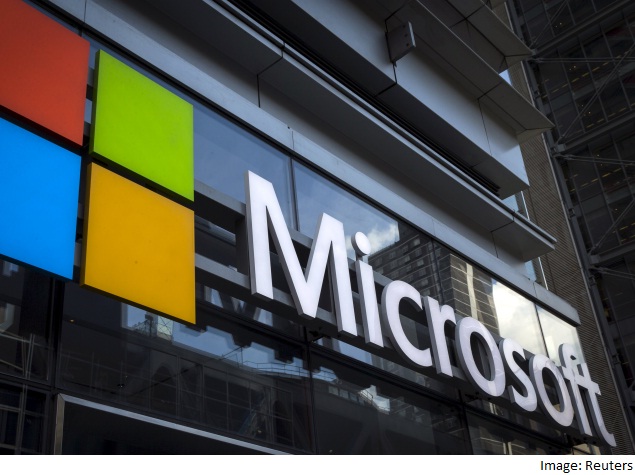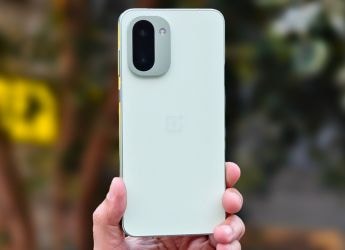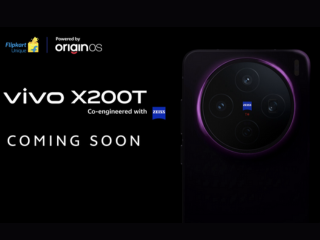- Home
- Mobiles
- Mobiles Features
- In Microsoft's Nokia Debacle, a View of an Industry's Feet of Clay
In Microsoft's Nokia Debacle, a View of an Industry's Feet of Clay

That's the amount Microsoft wrote off on Nokia's phone unit, which it bought a little over a year ago for what it said was $9.5 billion (roughly Rs. 60,832 crores). Considering that the deal included $1.5 billion (roughly Rs. 9,605 crores) in cash, the write-off means Microsoft now values a business that once controlled 41 percent of the global handset market at just a small fraction of the purchase price.
Thanks in large part to the huge accounting charge, Microsoft reported its largest quarterly loss ever last week ($3.2 billion or roughly Rs. 20,490 crores). It was only the third loss in its history as a public company.
"If you were talking about any other industry, this would be considered a catastrophe that's the equivalent to a natural disaster," said Horace Dediu, who spent eight years at Nokia during its heyday and is now at the San Francisco research firm Clayton Christensen Institute, which studies disruptive technologies.
This being the technology business, Microsoft's still relatively new chief executive, Satya Nadella, gets credit for swiftly confronting reality and taking the hit to earnings. This may have been easier given that it was his predecessor, Steve Ballmer, who pushed through the deal. (Though he threw his support behind it, Nadella initially opposed it.)
Nadella opposed the proposed deal in an initial poll of top Microsoft officials. But Ballmer was determined to push the deal through as a capstone to his long tenure as chief executive. Even after the deal was revised, and Nadella issued a public statement supporting it, two directors voted against it. Both have since left the board.
Microsoft's spokesman, Frank X. Shaw, said it was normal for there to be internal debate over major acquisitions. Still, it's rare for there to be open board dissent once final terms of a deal have been struck.
Microsoft is also in good company. Google abandoned its foray into smartphones when it sold Motorola Mobility to Lenovo last year. But it has written off just $378 million (roughly Rs. 2,420 crores) related to the $12.5 billion (roughly Rs. 80,047 crores) Motorola acquisition. Amazon wrote off an even more modest $170 million (roughly Rs. 1,088 crores) in October, acknowledging that its Fire phone was a flop.
"We try to learn from everything we do as we launch new opportunities," said Amazon's chief financial officer at the time, Thomas J. Szkutak, invoking the positive "learning" spin that technology companies typically put on failed ventures.
But far more was at stake for Microsoft than for Google or Amazon, since the main point of the Nokia deal was to support Microsoft's Windows operating system, which, in turn, was a crucial element in Microsoft's "mobile first" strategy. Now both handset operating systems and hardware are pretty much global duopolies, with Google and Apple dominating software and Samsung and Apple dominating hardware. Microsoft has jettisoned the strategy.
Microsoft's "grand scheme was to have a single platform that ran on PCs, laptops, tablets and phones, and to be able to sell applications that run Windows," said Nicholas Economides, an economics professor at the Stern School of Business at New York University who specializes in network economics and electronic commerce. "That failed."
Dediu said it was hard to put all the blame on Microsoft, since so many others had met a similar fate. "Most people didn't believe that such a catastrophe could occur this fast," he said. Microsoft "just couldn't imagine that a company that was once as strong and dominant as Nokia could have virtually no value."
He compared the swift rise of Apple and the withering fortunes of Nokia, BlackBerry and other once-thriving manufacturers to the arrival of an infectious virus. "We tend to think the strong will survive," Dediu said. "But a virus is a very small thing that kills big things."
He continued: "It's easy to say Microsoft was foolish and blame the chief executive. But when it happens to everyone, it's an extinction event. A whole bunch of companies were disrupted. And it happened in the blink of an eye."
Even so, as lessons go, $7.5 billion is pretty steep tuition. When I asked Microsoft what it had gotten for its money, its spokesman, Shaw, agreed that the speed of the changes in the industry had taken the company by surprise. "Everything always looks different with the benefit of hindsight," he said.
Microsoft has now embarked on what Nadella said is no less than a "reinvention" of the company. In an email to employees this month explaining the shift, Nadella said, "We are moving from a strategy to grow a stand-alone phone business to a strategy to grow and create a vibrant Windows ecosystem."
Shaw stressed that Microsoft would continue to manufacture Windows phones and other products, and that it would introduce a new line of Lumia phones this fall. But they will be differentiated products tailored to narrower market segments, like business customers concerned about security.
"One thing we learned is that if we offer differentiated products that focus on the things we do best, those products do well," Shaw said. "Instead of just thinking about our products running on our devices, we're thinking about how we reach people, no matter what device they're using. Our goal is to bring them home to Windows, where they'll have a better, differentiated experience."
As Nadella put it, "Our reinvention will be centered on creating mobility of experiences across the entire device family, including phones."
As a result, much is riding on Microsoft's new operating system, Windows 10, which it introduced this week.
Perhaps most important, Shaw said Microsoft recognized a pressing need to innovate: "If you miss the first wave, you have to hang on and then drive or anticipate the next wave. We want to be part of the next wave of disruption."
That, of course, is far easier said than done, especially since the next wave may already be upon us.
Apple has made a big splash with its Apple Watch, which the company has said is exceeding sales projections.
Microsoft introduced its own wearable computing device, the Microsoft Band, last year, months before Apple. The Band offers many of the same features as the Apple Watch, at a lower price. It works with multiple operating systems, unlike the Apple Watch, which works only with iOS. While not an unqualified hit with tech writers (neither is the Apple Watch), the Band has garnered many positive reviews.
Microsoft hasn't released any sales figures, but the Band seems to have barely dented consumer consciousness. It looks like a clunky fitness tracker, not a sleek high-end watch. The Apple Watch, by contrast, is already an instantly recognizable status symbol and fashion accessory.
Microsoft said it never positioned the Band as a watch, and thus it shouldn't be compared with the Apple Watch. But given that the Apple Watch also serves as a fitness device, has Microsoft already missed the next wave, the shift from the pocket to the wrist?
"It's a valid question," Dediu said. "It's not automatic that you can transition success from one platform to another. To survive long term in this industry, you have to create a new category or be a fast follower." He compared Microsoft to IBM, another technology giant "that seems to be in a slow decline that may never reverse."
Returning to his biology analogy, he said: "You're a large species, you get a virus. What can you do? It's not really your fault. But you're not immortal."
© 2015 New York Times News Service
Catch the latest from the Consumer Electronics Show on Gadgets 360, at our CES 2026 hub.
Related Stories
- Samsung Galaxy Unpacked 2025
- ChatGPT
- Redmi Note 14 Pro+
- iPhone 16
- Apple Vision Pro
- Oneplus 12
- OnePlus Nord CE 3 Lite 5G
- iPhone 13
- Xiaomi 14 Pro
- Oppo Find N3
- Tecno Spark Go (2023)
- Realme V30
- Best Phones Under 25000
- Samsung Galaxy S24 Series
- Cryptocurrency
- iQoo 12
- Samsung Galaxy S24 Ultra
- Giottus
- Samsung Galaxy Z Flip 5
- Apple 'Scary Fast'
- Housefull 5
- GoPro Hero 12 Black Review
- Invincible Season 2
- JioGlass
- HD Ready TV
- Laptop Under 50000
- Smartwatch Under 10000
- Latest Mobile Phones
- Compare Phones
- Tecno Spark Go 3
- iQOO Z11 Turbo
- OPPO A6c
- Samsung Galaxy A07 5G
- Vivo Y500i
- OnePlus Turbo 6V
- OnePlus Turbo 6
- Itel Zeno 20 Max
- Lenovo Yoga Slim 7x (2025)
- Lenovo Yoga Slim 7a
- Lenovo Idea Tab Plus
- Realme Pad 3
- Garmin Quatix 8 Pro
- NoiseFit Pro 6R
- Haier H5E Series
- Acerpure Nitro Z Series 100-inch QLED TV
- Asus ROG Ally
- Nintendo Switch Lite
- Haier 1.6 Ton 5 Star Inverter Split AC (HSU19G-MZAID5BN-INV)
- Haier 1.6 Ton 5 Star Inverter Split AC (HSU19G-MZAIM5BN-INV)
















